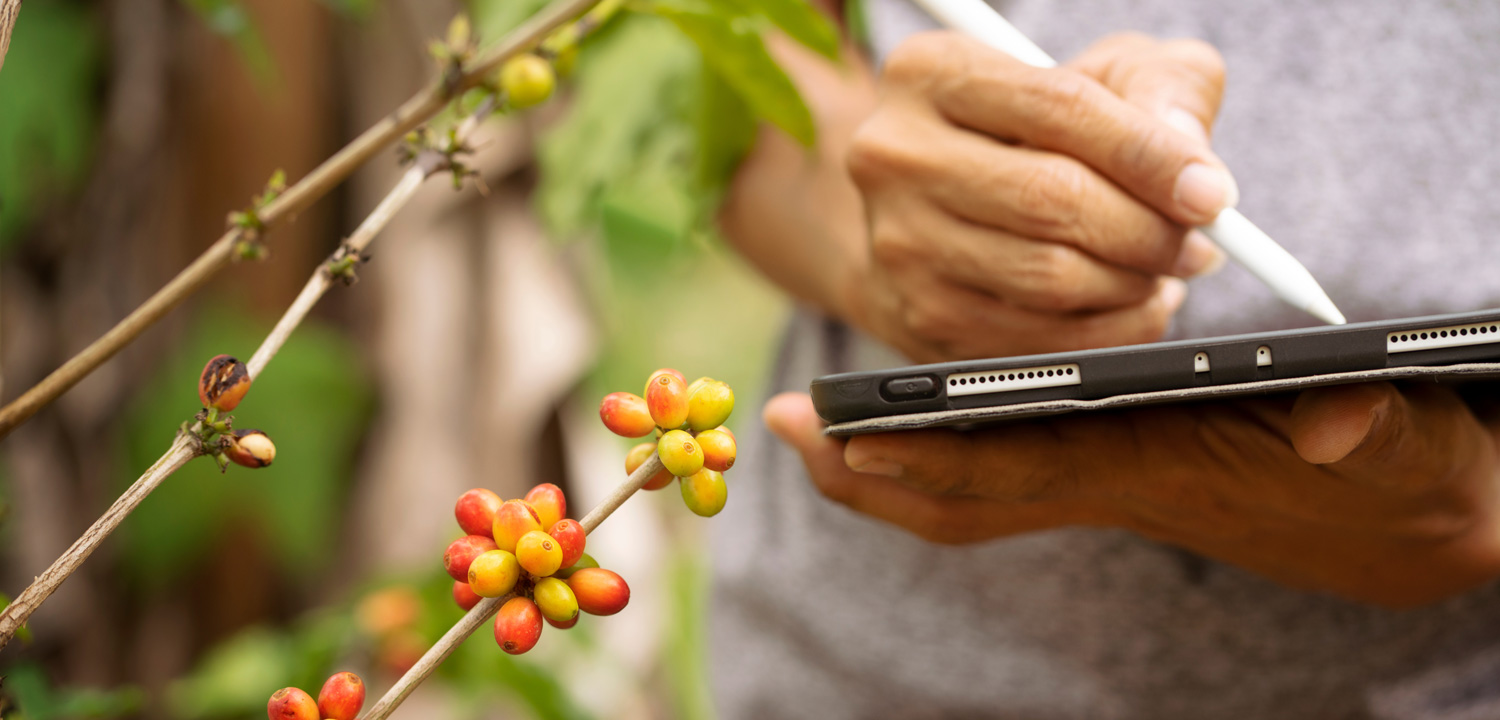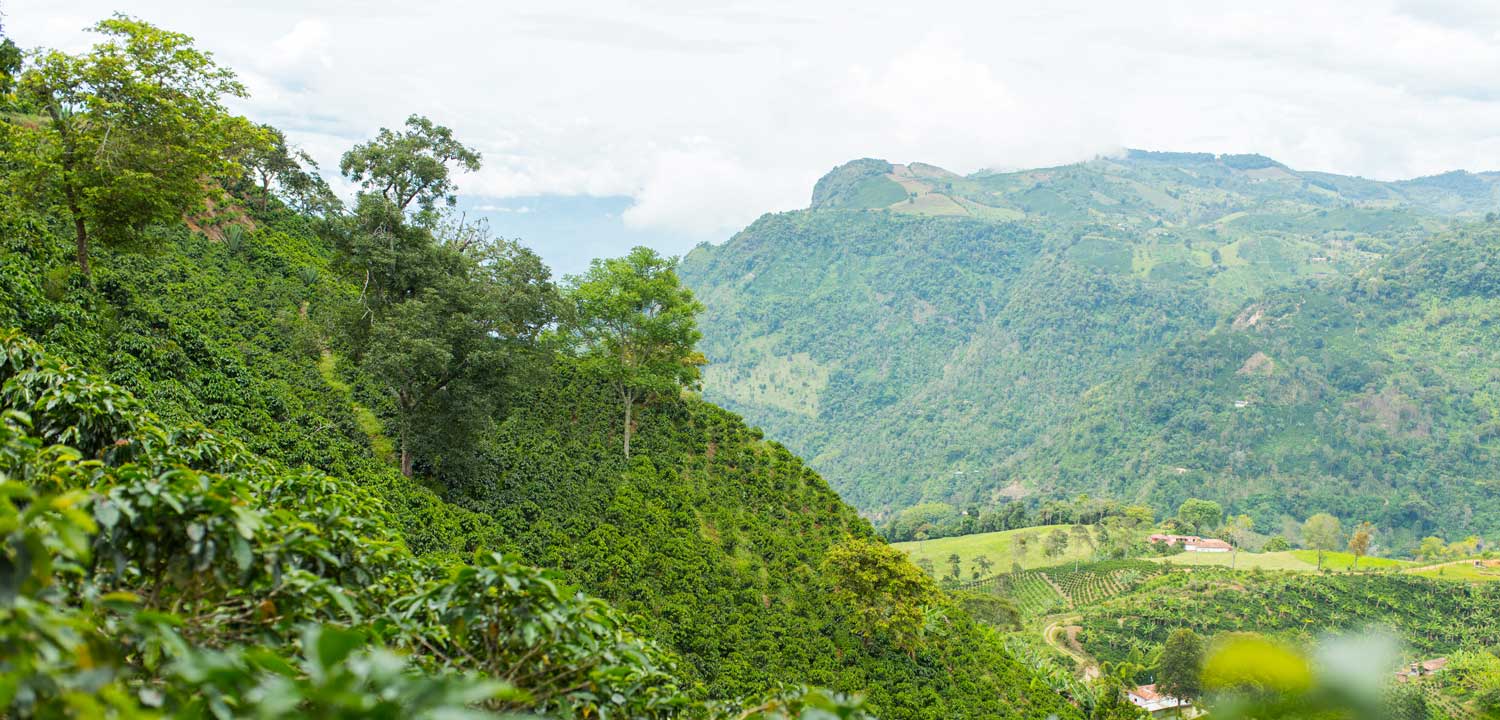Deforestation and forest degradation driven by agricultural expansion are growing at an alarming rate in tropical forest countries. These trends are contributing to the decline of biodiversity, weakening essential ecosystem services, and intensifying the impacts of climate change. In this context, transitioning to legal and deforestation-free value chains, particularly for commodities like cocoa, coffee, rubber, palm oil, soy and cattle, is essential to promote sustainable development and respond to increasing global expectations for environmentally responsible production.

Our objective: supporting countries in the transition to deforestation-free value chains
The Technical Facility on Deforestation-free Value Chains collaborates with commodity-producing countries to assist in transitioning to legal and deforestation-free value chains, in line with the EU Deforestation Regulation’s (EUDR) market requirements.
Activities are carried out in Africa, Latin America, and Southeast Asia and target key commodities such as cocoa, coffee, rubber and palm oil. Smallholder farmers are a key focus of the Facility’s work, ensuring that their role is recognised and supported in the transition towards sustainable and deforestation-free production.
Our work: providing tailored technical support and expertise
The Facility’s work is demand-driven and structured around priorities identified jointly with EU Delegations and DG INTPA, based on the needs of commodity-producing countries. The support is flexible and combines tailored technical knowledge with the involvement of a broad set of stakeholders and value chain actors. The Facility works in close collaboration with the Joint Research Centre of the European Commission (JRC).
The Facility aims to provide a flexible and rapid response to country stakeholders’ policy and technical needs, in close collaboration with other EU initiatives and programmes.

- Policy and trade dialogues: Facilitating informed dialogues between the EU and producing countries.
- Stakeholder engagement: Promoting multi-stakeholder dialogues and ensuring the inclusion of smallholders.
- Information exchange and lessons learned: Sharing knowledge and experiences to inform policy and practices at national, EU and international levels.
- Traceability: Developing robust, credible and transparent systems for tracking commodities.
- Legal frameworks and compliance: Clarifying legal and regulatory frameworks and means of verification.
- Deforestation risk monitoring: Strengthening national information systems and data availability.
- Trade and incentives: Analysing value chain dynamics and supporting incentive mechanisms.
Our knowledge
EUDR dry runs
- Insights from EUDR preparedness exercise in the coffee sector (Report 1, Report 2)
- Insights from EUDR preparedness exercise in the palm oil sector
Preparedness checks
- Preparedness check of Sri Lanka for the EU Deforestation Regulation
- Ethiopian coffee and the EU Deforestation Regulation (EUDR): state of play, challenges and opportunities
- Preparedness check of Kenya for the EU Deforestation Regulation
- Preparedness check of Tanzania for the EU Deforestation Regulation
- Preparedness check of Liberia for the EU Deforestation Regulation
Insights
Tools
Factsheets
- Unpacking the EU Deforestation Regulation for the cocoa sector (English, Français, Español)
- Unpacking the geolocation requirements under the EU Deforestation Regulation
- Unpacking legality requirements under the EU Deforestation Regulation (English, Français)
- Unpacking the EU Deforestation Regulation for the coffee sector
- Unpacking the EU Deforestation Regulation for the coffee sector in the ASEAN region
- Le règlement européen sur la déforestation et la filière bois en Côte d'Ivoire
- Le règlement européen sur la déforestation et la filière hévéa en Côte d'Ivoire
Requesting support
The Technical Facility can be mobilised upon request from EU Delegations. Delegations can contact the thematic unit F3 on “Sustainable Agri-Food Systems and Fisheries” at DG INTPA, who will liaise with the Facility.
Support can include:
- Analysis, technical assistance and facilitation on topics such as legality, traceability, deforestation risk monitoring, trade and incentives, and smallholder inclusion.
- Inclusive approaches that involve governments, civil society and the private sector in both producing and consuming countries.
- Multi-stakeholder approaches to promote inclusive dialogue and develop technical solutions.
- Flexible and versatile support, combining EFI in-house technical expertise with service contracts and grants involving external partners.
Contact: Christophe Van Orshoven